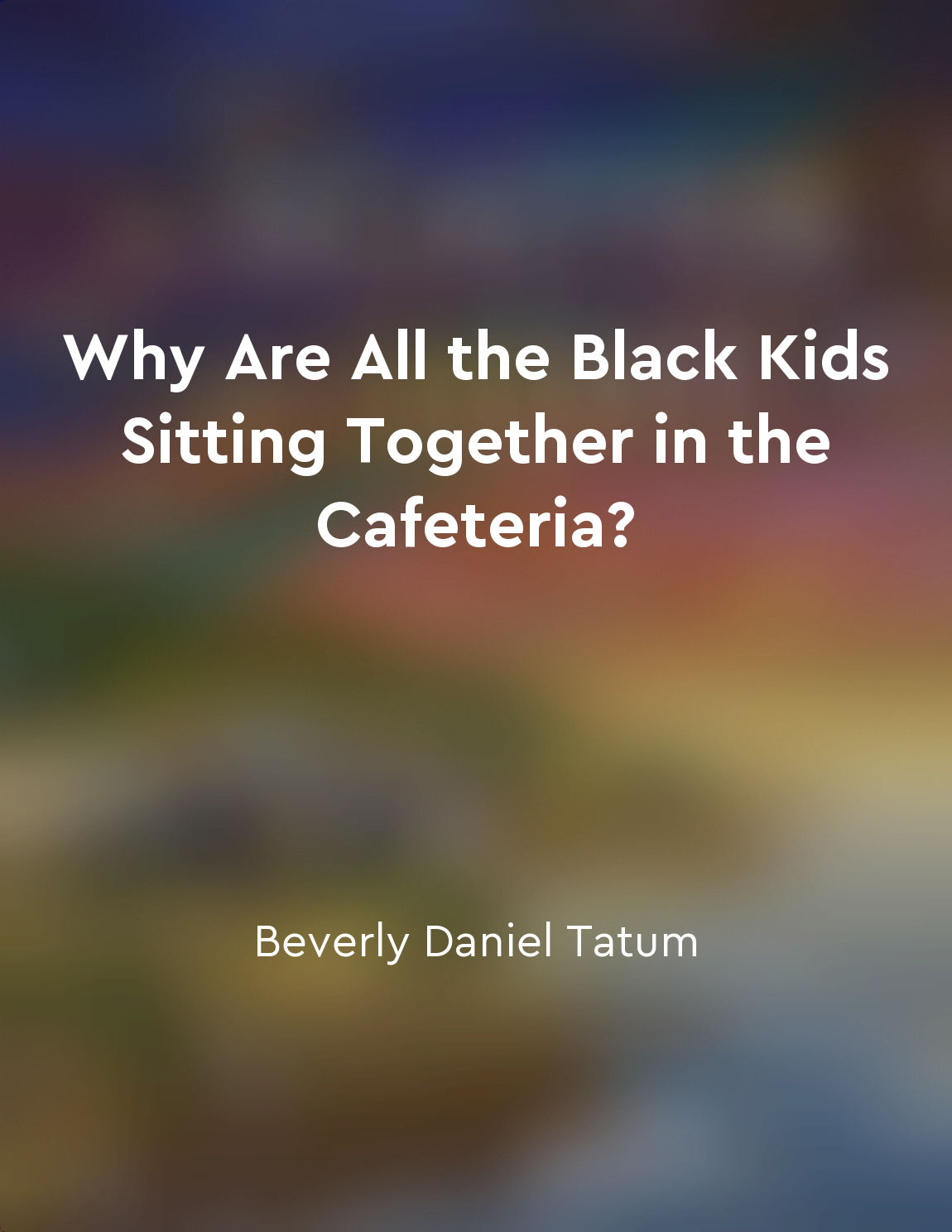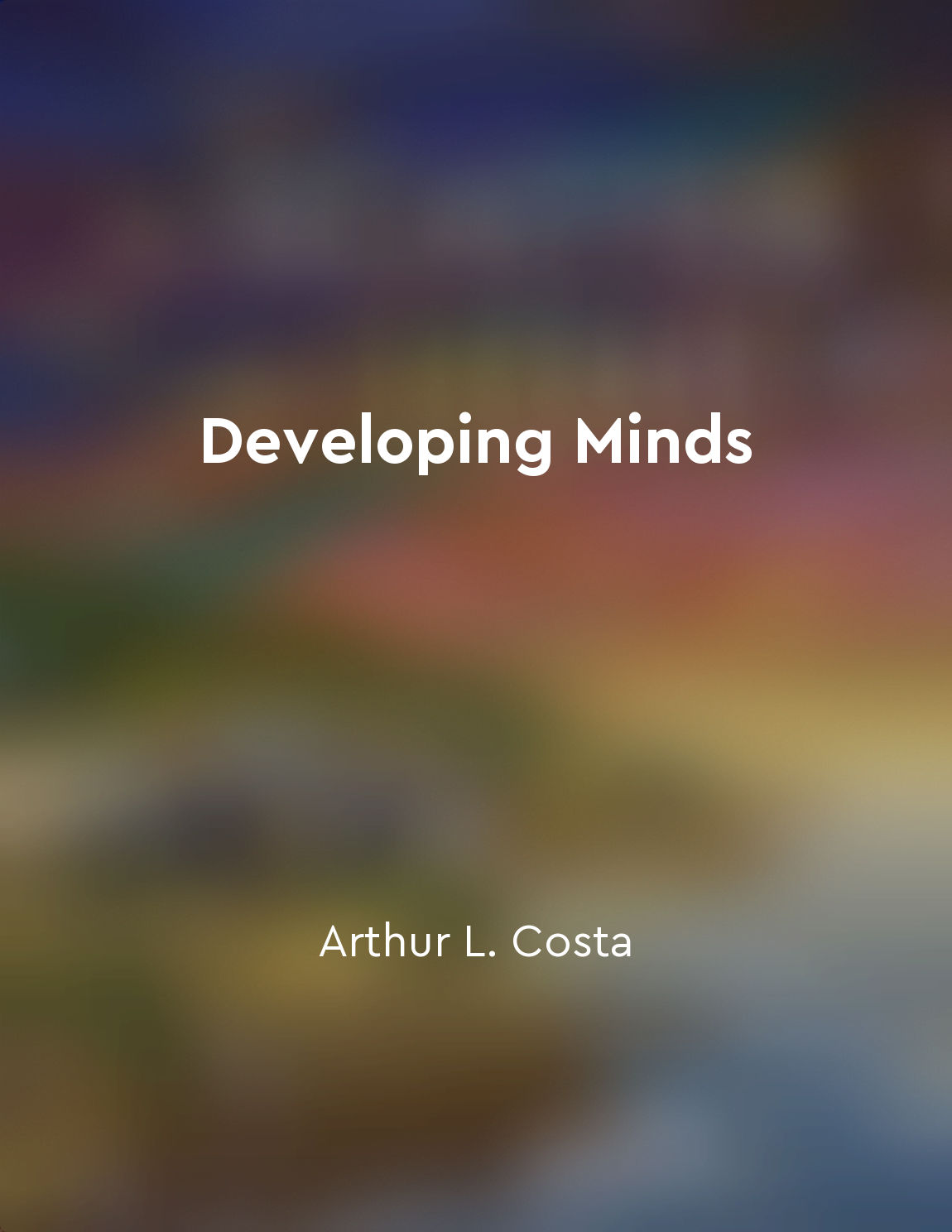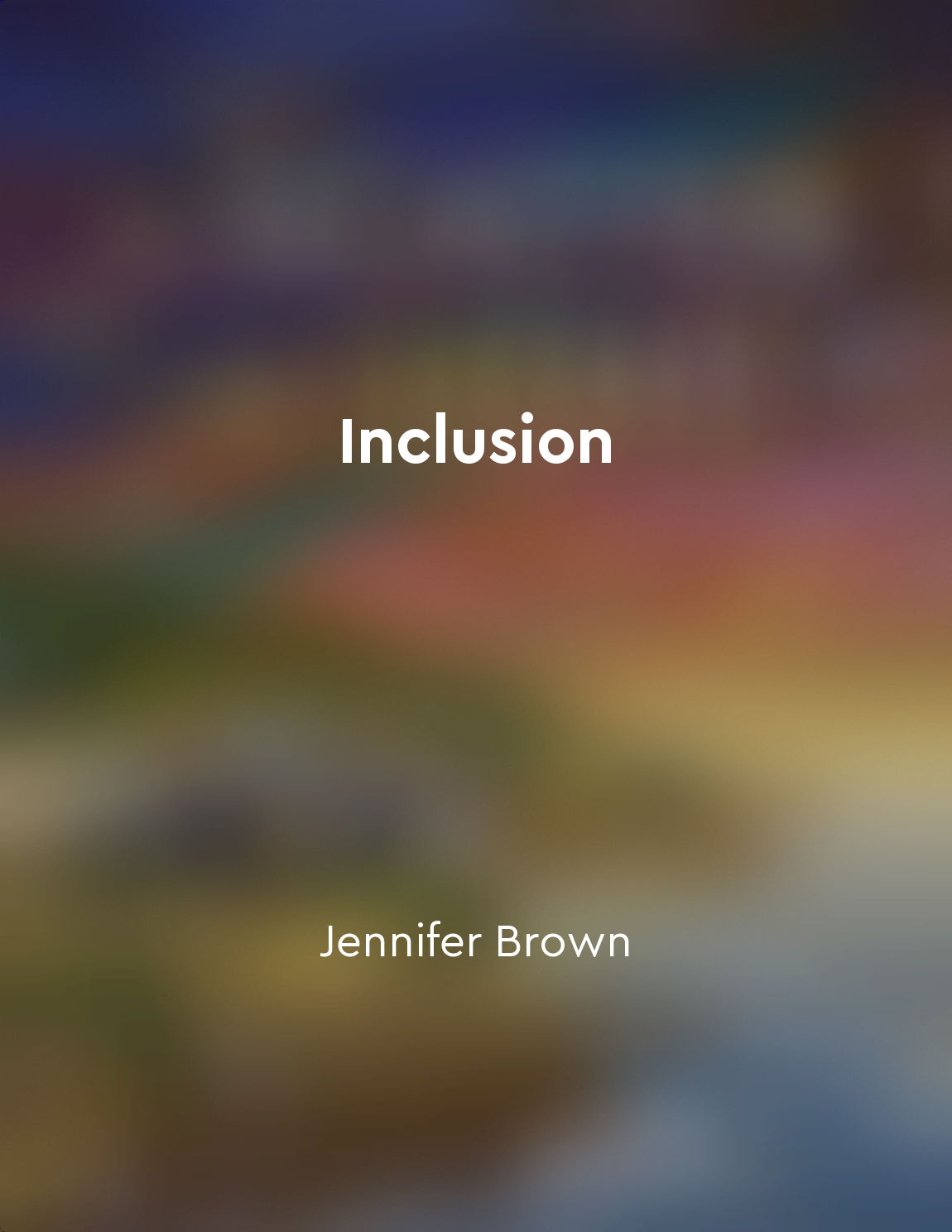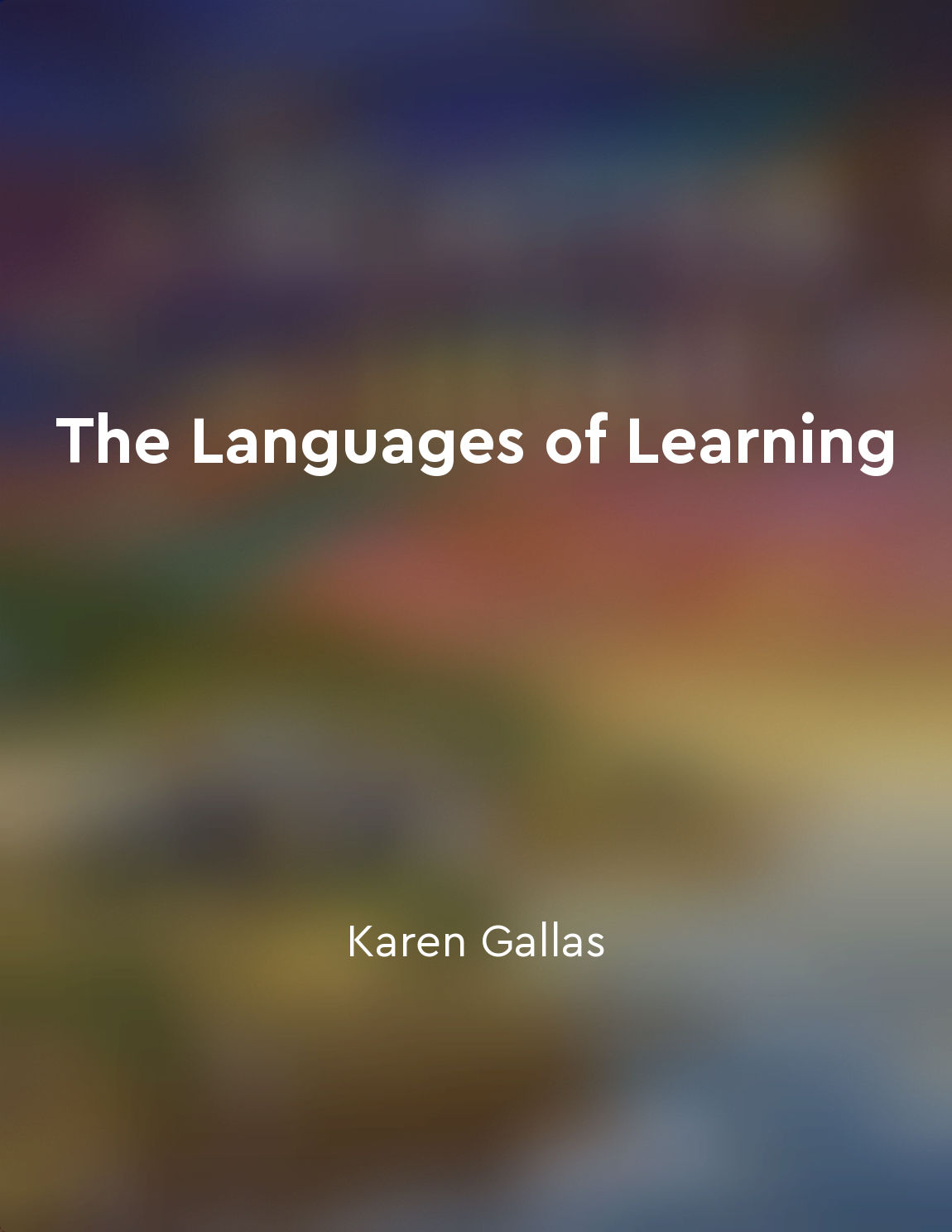Foster cultural competence from "summary" of Culturally Responsive Teaching by Geneva Gay
To effectively educate students from diverse cultural backgrounds, educators must foster cultural competence. This involves developing an awareness and understanding of different cultural perspectives, practices, and values. By being culturally competent, educators can create a learning environment that is inclusive and respectful of all students' backgrounds. One way to foster cultural competence is through self-reflection. Educators should examine their own beliefs, biases, and assumptions about different cultures. This self-awareness can help educators identify any potential prejudices or stereotypes they may hold, allowing them to address and challenge these biases. In addition to self-reflection, educators can also engage in professional development opportunities focused on cultural competence. This may involve attending workshops, seminars, or training sessions that provide information and strategies for effectively working with diverse student populations. By continually learning and growing in this area, educators can better meet the needs of all students. Another important aspect of fostering cultural competence is building relationships with students and their families. By taking the time to get to know students on a personal level and understanding their cultural backgrounds, educators can create a sense of trust and connection. This relationship-building can help educators better support students academically and emotionally. Furthermore, educators can integrate culturally responsive teaching practices into their classrooms. This may involve incorporating diverse perspectives into the curriculum, using culturally relevant materials and resources, and adapting teaching strategies to meet the needs of diverse learners. By making these adjustments, educators can create a more engaging and inclusive learning environment for all students.- Fostering cultural competence is essential for creating a positive and supportive learning environment for students from diverse backgrounds. By developing an awareness of different cultures, engaging in professional development, building relationships with students and families, and integrating culturally responsive teaching practices, educators can better meet the needs of all learners and promote academic success.
Similar Posts
Listening and speaking skills development
Listening and speaking skills development is a crucial aspect of language learning, especially in the context of teaching Japan...
Knowledge breeds academic success
The central premise of this work is that knowledge is the key to academic success. The idea is that the more knowledge a studen...

Colorblindness is not an effective approach to racism
Attempting to address racism through a colorblind approach may seem like a well-intentioned strategy, but it ultimately falls s...

Developing minds should be encouraged to question and challenge
Encouraging developing minds to question and challenge is essential for their growth and development. When young minds are enco...
Dialogue as a tool for liberation
The concept of dialogue as a tool for liberation is central to Freire's Pedagogy of the Oppressed. Through dialogue, individual...
Mastery of concepts is key
One of the fundamental ideas that underpin effective teaching is the notion that mastery of concepts is key. This concept empha...

Promote collaboration
Promoting collaboration is essential for fostering an inclusive environment within organizations. Collaboration encourages indi...

Learning is a complex process
Learning, as described in the book "The Languages of Learning" by Karen Gallas, is not a straightforward or linear activity. It...
Detecting lies is a valuable skill
The ability to spot a lie can be a powerful tool in both personal and professional settings. In the book "Eu sei o que você est...
Effective communication skills are vital in the modern world
In today's fast-paced and interconnected world, the ability to communicate effectively is more important than ever. Whether it'...

